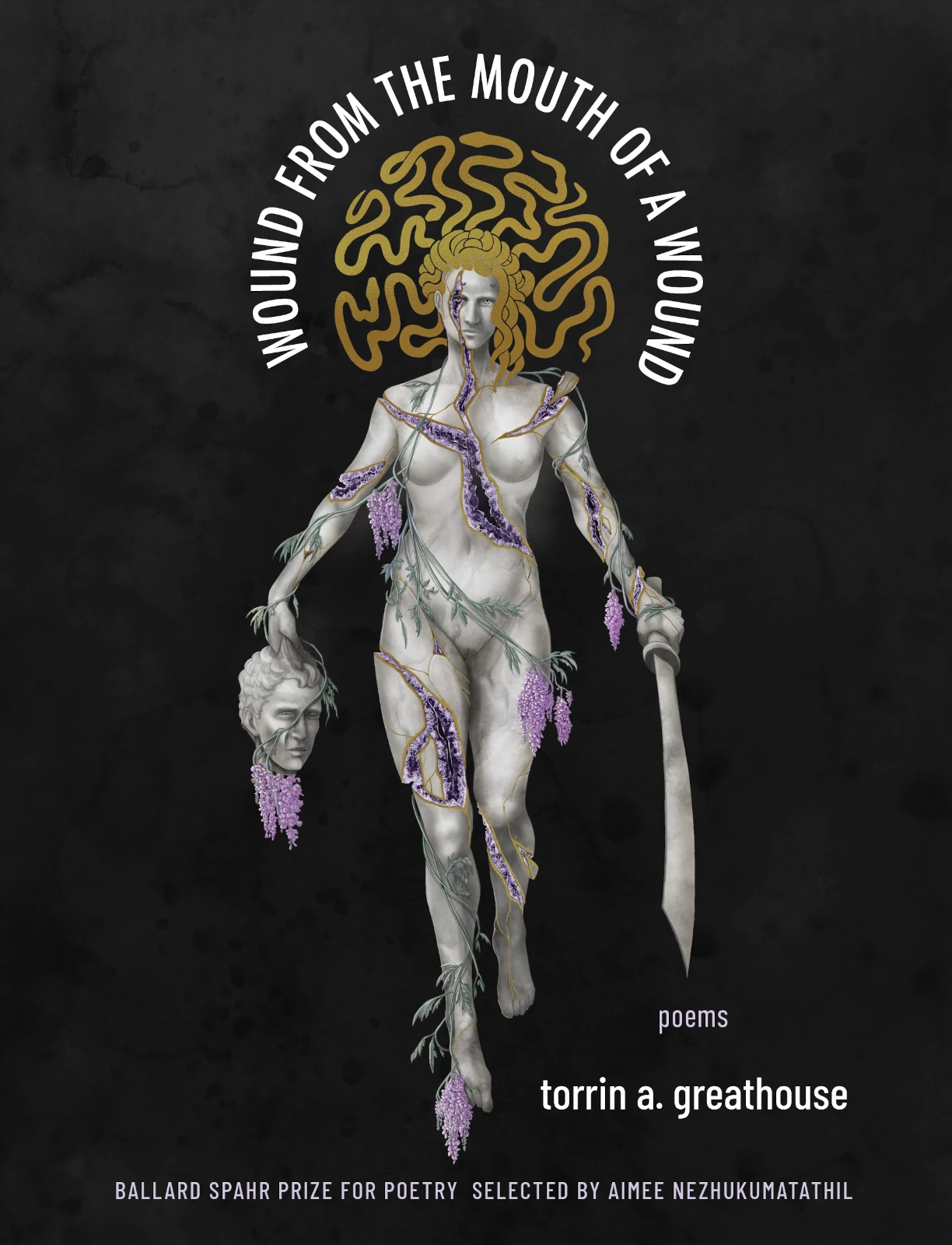
A review of Wound from the Mouth of a Wound by torrin a. greathouse
Words By Miki Schumacher
Published December 22, 2020 by Milkweed Editions
While reading torrin a. greathouse’s (she/they) debut poetry collection Wound from the Mouth of a Wound, I was struck by the visceral imagery and dynamic tension of her language. From the first poem “Medusa with the Head of Perseus,” I was immediately pulled into the mythology of one’s body. What does it mean for our stories to swallow themselves? What happens when you devour your own body? Selected by Aimee Nezhukumatathil for the 2020 Ballard Spahr Prize for Poetry, Wound from the Mouth of a Wound presents a refreshing perspective on the body, myth, and navigating a world that so often rejects you. greathouse embraces the possibilities of language, and the result is an incredibly beautiful collection on femininity, sexuality, disability, and how these intersect in the body.
Divided into five sections, the poems in greathouse’s collection consistently presented me with new questions and unique images. In “They Leave Nothing for the Morning,” a scene of two coyotes hunting enters into a description of one’s own body as a meal, and it finally transforms into the image of the golden slick of a freshly laid egg. These kinds of unexpected pathways through language can be found throughout greathouse’s poetry, and each of them is a unique exploration. At times, the sheer amount of themes tackled in this collection can feel overwhelming, but this is also what makes them so attractive—each poem provides an entry point to something new but also is reminiscent of what has come before it. This results in an extensive discussion of the body and consumption.
greathouse also explores the boundaries of form in their work. In this collection, you can find poems that are blacked out, divided with vertical lines, and words that can only be read if you hold the page up to a mirror. This last example is especially intriguing, as the reader becomes a part of the poem’s own visual landscape. This visual aspect to greathouse’s poetry adds yet another layer of intimacy with both the reader and the words themselves. In “Burning Haibun,” greathouse begins the poem with a section of prose, creates an erasure of this in the second section, and then finally creates a haiku out of this erasure. Reading the poem and seeing how each section morphs into another feels like putting together a puzzle. greathouse’s poetry invites you to linger on each page as you discover more about the connections she draws between language and the body.
After finishing this book for the first time, I found myself flipping back through its pages to see what else I could find. I’ve been a fan of Milkweed Editions for a few years now, and this next publication from them is yet another beautiful and exciting addition to poetry today. I recommend this collection to readers that enjoy other contemporary poetry and authors, or for those that are looking for an entry point to reading more poetry; greathouse’s collection has certainly left me coming back for more.